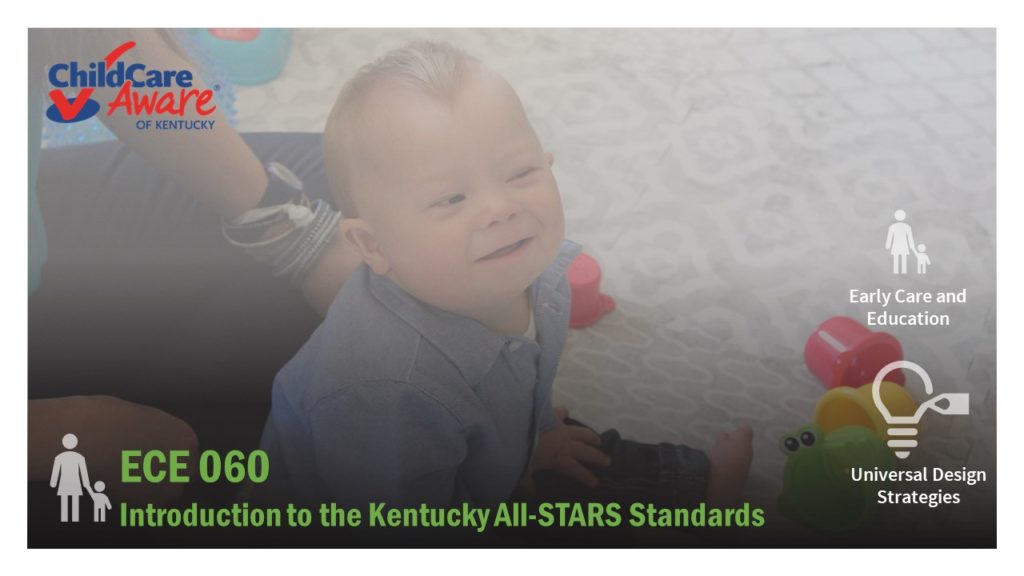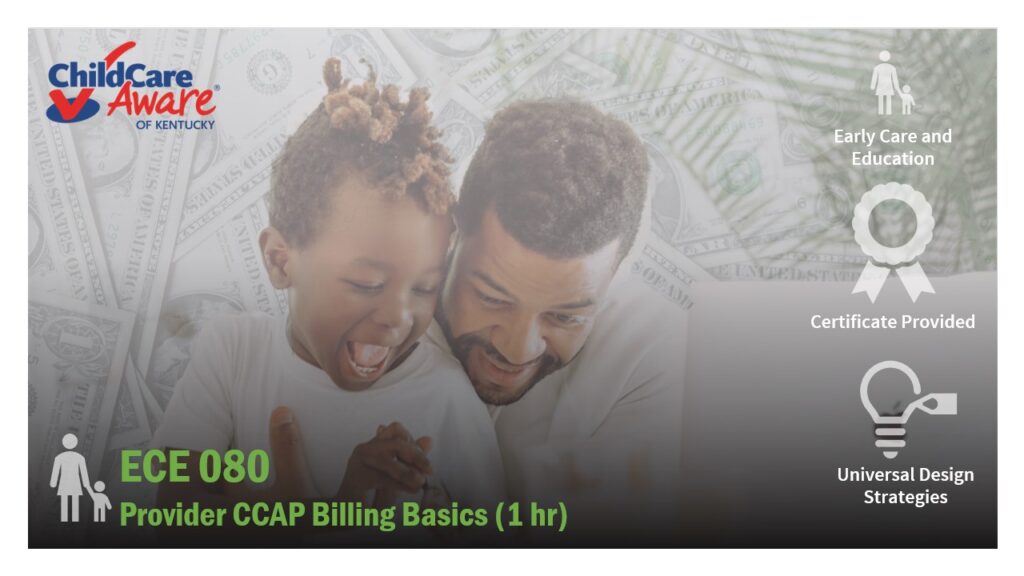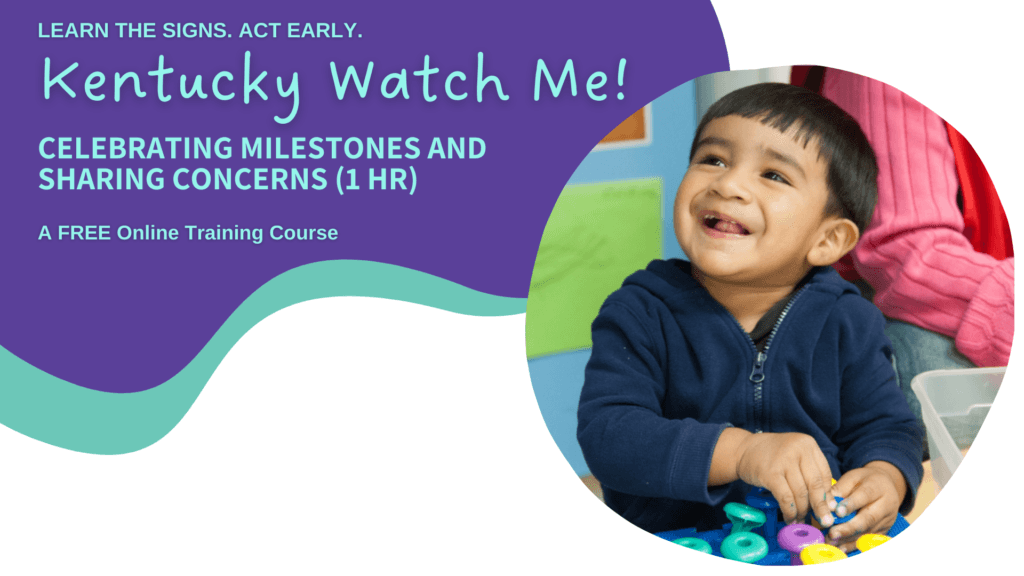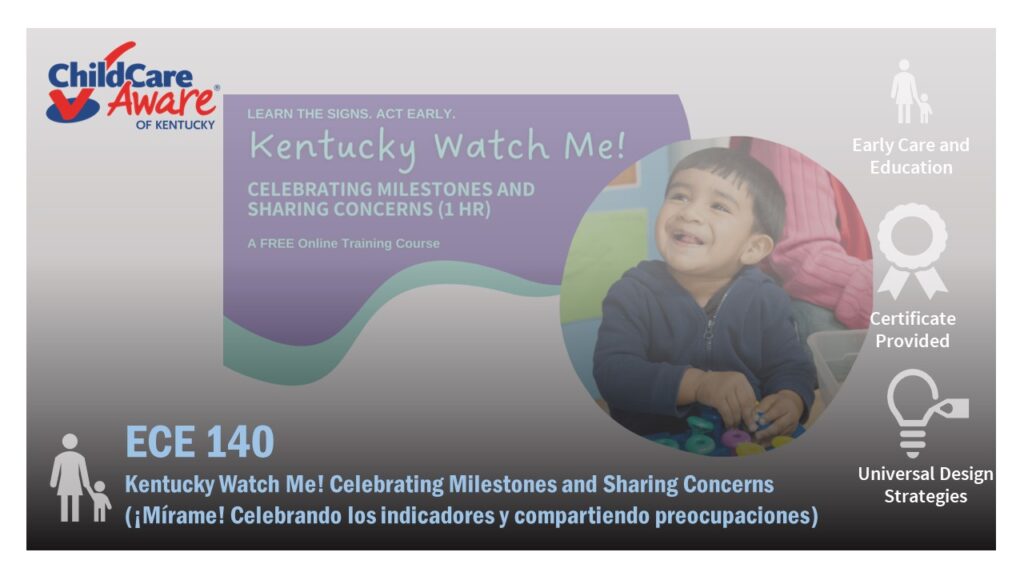Early Childhood

We are in the process of moving all trainings from HDI Learning to Inspire Learning Hub. As trainings are moved registration on HDI Learning will be removed for the training. If you have already registered for a training that is no longer available on HDI Learning you will have 30 days or until June 30th to complete (whichever is later). All courses registered for will be available under “My Courses.”
Looking for more early care and education trainings? Visit our new learning center, Inspire Learning Hub!
--
Early care and education courses are developed for child care providers. The minimum number of training hours for a child care provider is 15 hours annually. The number of hours for each course are listed. If you have questions about a course, please contact your Training Coach, or use the Contact Us button at the bottom of the page.
If you are registering yourself, click For Myself to add the course to your cart. If you do not already have an account, you will be prompted to create the account during the checkout process. If you are registering one or more people, choose For Groups, and follow the check-out steps to manage a group.
Course List

This 6-hour online course fulfills the mandatory orientation requirement for early care and education professionals in Kentucky. Successful completion of this course satisfies the Division of Child Care’s (DCC) new regulatory requirement for each center to ensure that every staff member has received training on first aid and cardiopulmonary resuscitation (CPR).

Target Audience: Early Care and Education. This brief introduction to the Kentucky All STARS standards is a required training in order to be eligible to receive quality incentives in the ALL STARS quality rating and improvement system. Informational session, no hours assigned.

Provider CCAP Billing Basics (July 2025) is designed to give child care providers an introduction to the Child Care Assistance Program (CCAP) and the CCAP billing process. All Licensed, Certified and Registered providers participating in CCAP will need to complete this training and provide documentation of completion to the CCAP Billing Section once during each year of operation and upon change of the staff member submitting billing information. Providers need to retain a copy of the documentation of completion for their files.
CCAP provides payment assistance on a sliding income scale for eligible families, allowing them to gain employment and remain employed.
You will receive 1 clock hour of credit in ECE-TRIS upon the completion of this course.

As an early care and education provider, you play a critical role in the health and wellbeing of children. You are also very well positioned to help identify children who might need extra help in their development. This online training course, Watch Me! Celebrating Milestones and Sharing Concerns, will help you fulfill this role by providing tools and best practices for monitoring the development of children in your care and talking about it with their parents. The Kentucky version of this training adds a section on Kentucky resources, and upon course completion, you will be issued 1 early care and education clock hour in ECE-TRIS.
Cost: FREE

Como proveedor de Educación Temprana, juegas un papel critico en la salud y bienestar de los niños. Además, estás en el lugar indicado para identificar si algún niño necesita ayuda especifica en su proceso de desarrollo. Este curso en línea, Watch Me! Celebrating Milestones and Sharing Concerns, te ayudará a cumplir tu rol, brindándote las herramientas y prácticas necesarias para monitorear el desarrollo de los niños que cuidas, e informar apropiadamente a sus padres.
